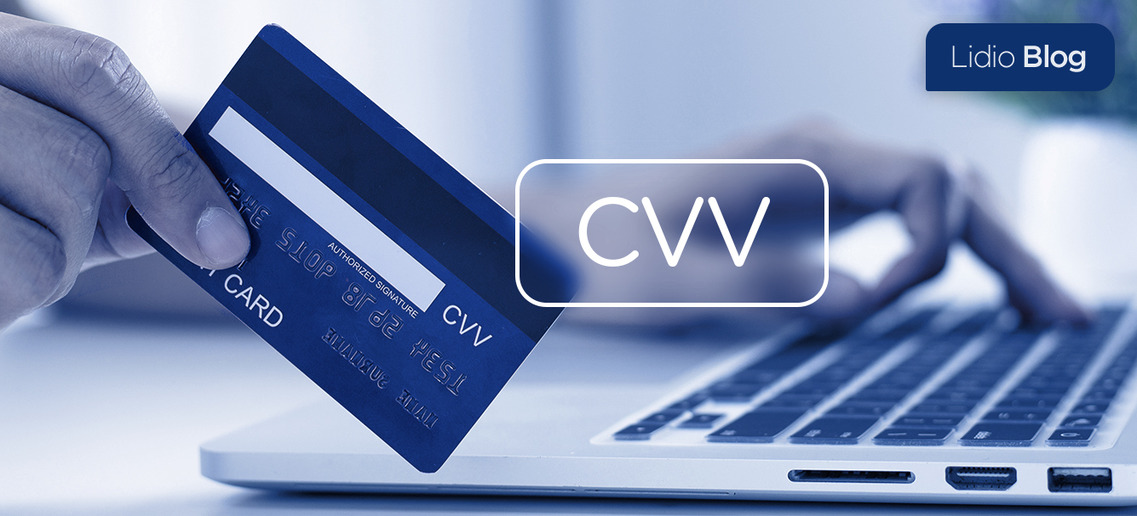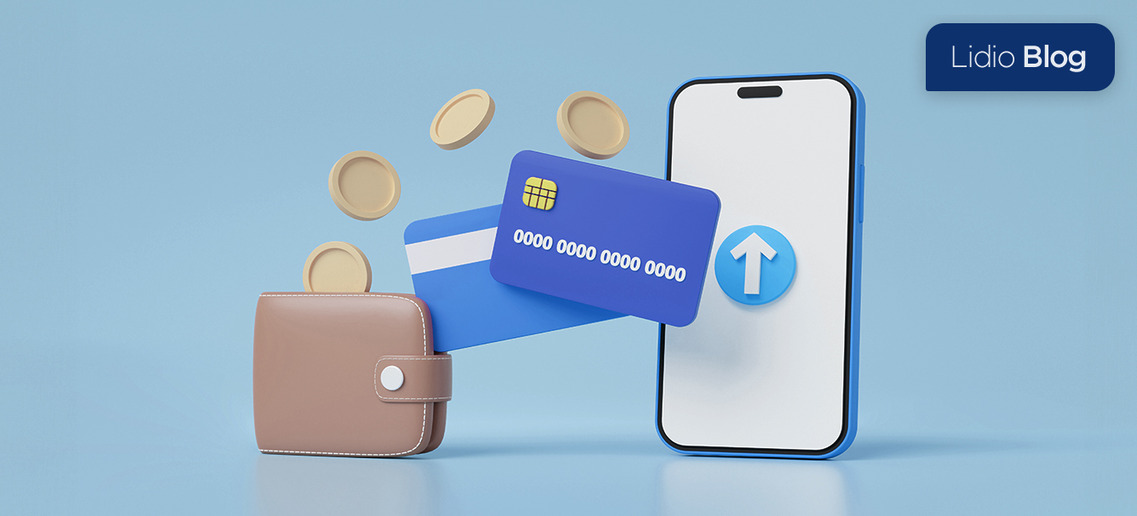
Tek Tıkla Ödeme Nedir E-Ticarette Dönüşüm Oranlarını Artırmanın Yeni Yolu
Tek Tıkla Ödeme Nedir E-Ticaret’te Dönüşüm Oranlarını Artırmanın Yeni Yollarını Keşfedin...
Ödeme sistemleri, online mağazalarınızda müşterilerinizden ödeme almak için kullanılan finansal teknolojilerin tümüne verilen addır. Detaylı bilgi için web sitemizi ziyaret edin!

E ticaret ödeme sistemleri çevrimdışı para transferine karşılık gelen veri alışverişi olarak tanımlanabilir. Bu veri alışverişinde satın alınan ürünün para birimi olarak karşılığına denk gelen miktar, alıcıdan satıcının banka hesabına transfer edilir. Bu transfer işlemi her iki tarafın finansal durumlarında da fark yaratır. Dolayısıyla işlemin yüksek güvenlikli bir altyapıda gerçekleştirilmesi önem taşır.
Türkiye’de 2018 yılından itibaren ivmelenmeye başlayan e ticaret ödeme sistemleri içeren online pazarın büyüme miktarı 2020 yılında, başlangıcın üç katı kadar artış gösteriyor. Statista’nın araştırmasına göre 2021 yılının Aralık ayında gerçekleşen e ticaret toplam perakende satışlarının %20’sine karşılık geliyor. Aynı yılın dördüncü çeyreğinde e ticaret işlemleri sayısı 400 milyon gibi rekor rakama ulaşıyor.
E ticaret işlemlerindeki büyük hacim, satıcılar arasındaki rekabeti ve müşteri deneyimini iyileştirme konusundaki çalışmalarında motivasyon sağlar. Bu motivasyon tüketicinin ürünün satın almadaki beğeni kriterlerini de hassaslaştırır. Online alışverişlerde para transferi için kullanılan ödeme sistemleri de dikkat edilen kriterler arasındadır. Alternatifli ödeme sistemleri e ticarette müşterinin memnuniyeti için gereklidir. Tarafsız ve bağımsız bankalararası sistemlerle denetlenen süreçlerin her bir aşaması büyük bir titizlikle gerçekleştirir. Kanunlar, yasal sınırlandırmalar ve çeşitli mevzuatlara göre düzenlenen ödeme sistemleri hem müşterilere hem de işletmelere büyük kolaylık sağlar. Her aşaması hem devlet kurumlarıyla hem de bağımsız denetleme şirketleriyle incelenen sistemler sadece pratik olmakla kalmaz aynı zamanda işlem güvenliği de sunar.E ticaretle uğraşıyorsanız online ödeme sistemleri hakkında detaylı bilgi sahibi olmanız önemlidir. Kartlı ödeme sistemleri yer alan internet sitesinde, müşteri satın almak istediği ürün veya hizmeti sepete ekleyerek ödeme sayfasına geçer.
Bu sayfada kredi veya debit kartının 16 haneli numarasını, son kullanma tarihi ve CVV bilgisini girer. Böylelikle ödemeyle ilgili ağ iletişimi başlar.Şifrelenen kart bilgileri alıcı bankaya gönderilmeden önce tekrarlı olarak güvenlik ve farklı şifreleme katmanlarından geçer. Tüketicinin hesabı satın alım için uygunsa banka ödemeyi onaylar, bilgilendirme mesajları tüketiciye ve siparişin verildiği siteye gönderilir. Arka plandaki şifrelemeler ve güvenlik korumaları dahil olmak üzere tüm prosedürün üç saniyeden az sürede tamamlanması gerekir. Para transferi farklı bankaların ya da ödeme sağlayıcıların geliştirdiği çeşitli uygulamalar aracılığıyla gerçekleştirilir. Bu uygulamalar sayesinde tüm kartlarınızı tek platformda görebilir, farklı ödeme yöntemlerinden birisini tercih edebilirsiniz. Lidio entegrasyonundan sonra farklı kanallar aracılığıyla yapılan online ödeme sistemleri dahil olmak üzere birçok yöntemi çok daha rahat ve kolayca kullanabilirsiniz. Ödeme sistemleri içinde Lidio POS’un yanı sıra farklı bankalardan ödeme kabul etmeyi sağlayan Lidio Pass gibi tek tıkla ödeme alma altyapıları da bulunur. Bu uygulamaların tamamı birbirine entegre ve çok gelişmiş sistemlerdir.Sanal POS ödeme sistemleri online alışverişin pratik ve güvenli olarak gerçekleşmesinde anahtar rol oynar. Bağımsız ve devlet kurumlarına bağlı denetleyiciler tarafından kontrol edilen sistemler küresel kriterleri sağlayan sertifikasyona sahip olmalıdır. Özellikle sanal POS sistemleri gibi ödeme içerikli uygulamalarda Türkiye Bankacılık Düzenleme ve Denetleme Kurulu ile Türkiye Cumhuriyeti Merkez Bankası’nın onayladığı kurumlarla işbirliği yapılması önemlidir.
Türkiye’de geçerli elektronik ödeme sistemleri kurgu ve algoritma olarak küresel uygulamalar ile aynı akışa sahiptir. e ticaret ve özellikle perakende sektöründeki hızlı ivmelenme sayesinde web sitelerinde birçok farklı ödeme sistemi görmek mümkün. Ülkemizde kullanılan popüler ödeme sistemleri şöyledir:
Ödeme sistemleri kullanıcı eğilimleri ve yöntemlerin pratikliğine göre farklılaşır. Hem dünyada hem de Türkiye’de son yıllarda değişen trendler farklı ödeme sistemlerinin yaygınlaşmasını neden olmuştur. Popüler online ödeme sistemleri arasında Lidio Sanal POS ve Lidio Pass gibi bütünleşik sistemler dikkat çeker. Bu kurguda tüm finansal ihtiyaçlarınızı tek bir noktadan yönetebilir. Lidio Sanal POS ile online ortamda müşterilerinizden kredi kartı ile milisaniyeler içerisinde ödeme alır, Lidio Pass ile müşterilerinizin kartlarını Lidio'nun güvenli altyapısında kaydedebilir ve onlara pürüzsüz bir alışveriş deneyimi sunabilirsiniz. Ayrıca Lidio'nun Akıllı İşlem Yönlendirme ve Sahtecilik Önleme ürünleri ile birlikte işletmenizin kayıplarını ve risklerini azaltabilir, satış dönüşüm oranlarında artış elde edebilirsiniz.

Tek Tıkla Ödeme Nedir E-Ticaret’te Dönüşüm Oranlarını Artırmanın Yeni Yollarını Keşfedin...

CVV Kodu Nedir? Neden önemlidir? Öğrenmek için blog yazımızı zirayet edin!...

Provizyon Nedir? Provizyon Ne İçin Kullanılır? Öğrenmek için blog yazımızı ziyaret edin!...

QR Kod Nedir? QR Kod Ne İçin Kullanılır? Öğrenmek için blog yazımızı zirayet edin!...

Linkle ödeme nedir, linkle ödeme sistemi nasıl çalışır, avantajları nelerdir, ve linkle ödeme nasıl alınır merak ediyorsanız detaylı bilgi için blog yazımızı okuyun!...

Ödeme sistemleri, online mağazalarınızda müşterilerinizden ödeme almak için kullanılan finansal teknolojilerin tümüne verilen addır. Detaylı bilgi için web sitemizi ziyaret edin!...

Ödeme sayfası nedir, sayfa güvenliği nasıl anlaşılır, ödeme sürecinin güvenli olduğundan emin olma yolları nelerdir hakkında detaylı bilgi için blog yazımızı okuyun. ...

Startup Nedir? Startup nasıl kurulur öğrenmek için blog yazımızı zirayet edin!...

Check Out Nedir? Neden önemlidir öğrenmek için blog yazımızı zirayet edin!...

Dijital Cüzdan Nedir? ? Neden önemlidir öğrenmek için blog yazımızı zirayet edin!...

E-Tahsilat Nedir? E-Tahsilat Ne İçin Kullanılır? Öğrenmek için blog yazımızı zirayet edin!...

İnternet alışverişinde tüketicilerin hakları nelerdir, kabul edilen sözleşmeler neyi ifade eder detayları ile öğrenmek için blog yazımıza göz atın!...

Sanal POS hakkında tüm bilmeniz gerekenler: Öğrenmek için blog yazımıza göz atın!...

Sepeti terk etme oranları işletmeler için neden önemlidir, nasıl minimize edilir öğrenmek için blog yazımıza göz atın!...

Geleneksel ödemelerden açık bankacılığa finansal serbestleşme nedir ve neden önemlidir öğrenmek için blog yazımıza göz atın!...

Uluslararası ödemeler nasıl gerçekleştirilir, hangi yöntemler kullanılır öğrenmek için blog yazımıza göz atın!...

Ödeme alma sürecinde tahsilatları tek ekrandan yönetmek işletmelere ne gibi avantajlar sağlar öğrenmek için blog yazımıza göz atın!...

ERP nedir, POS ve hesap hareket takibi nasıl yapılır öğrenmek için blog yazımıza göz atın!...

Issuer, Acquirer ve PSP kavramları nelerdir, PSP seçimi neden önemlidir öğrenmek için blog yazımıza göz atın!...

İnternetten yapılan alışverişlerde dolandırıcılığa karşı kullanılan güvenlik önlemleri nelerdir öğrenmek için blog yazımıza göz atın!...

E-ticarette online satış yapmanın püf noktaları nelerdir, tüketici deneyimi nasıl iyileştirilir öğrenmek için blog yazımıza göz atın!...

Açık bankacılık nedir, işletmelere nasıl avantajlar sağlar öğrenmek için blog yazımıza göz atın!...

Güvenli online alışverişin şifresi: 3D Secure Ödeme nedir, ne işe yarar öğrenmek için blog yazımıza göz atın!...

Kredi kartı, kapıda ödeme, havale/kredi, mobil ödeme gibi alternatif ödeme yöntemleri nelerdir, nasıl kullanılır öğrenmek için blog yazımıza göz atın!...